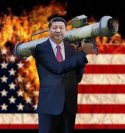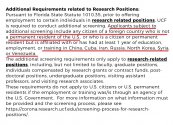You are using an out of date browser. It may not display this or other websites correctly.
You should upgrade or use an alternative browser.
You should upgrade or use an alternative browser.
Miscellaneous News
- Thread starter bd popeye
- Start date
Can't even be mad because the illustration is really great, lol. Props to the artist.
hush please.China actually benefits from developing countries growing faster, due to its strong manufacturing base which can export high value goods
So with US and EU jumping on the BRI-competition train, they haven't realise that its not BRI itself that benefits China so much, but by growing the countries'economies they will start using more Chinese industrial goods
Basically, the West is now supercharging the BRI effect which will grow the developing countries more, and thus, you guessed it, eventually grow China stronger
To sum up, BRI is a masterstroke. Either they don't compete and leave the world to China, or they try to compete, and with pooling so many resources they accelerate those countries' growth that also helps China as a global dominating export country lol
Now that Africa is wrapped up for the next 3 years, it’s time to focus on South and Central America, until CAP is ready to be talked about.
The governments of Argentina and China Wednesday agreed to strengthen bilateral ties, particularly in science and technological developments, it was reported.
After a meeting between Argentina's Ambassador to Beijing Sabino Vaca with China's Vice Minister of Industry and Information Technology, Zhang Kejian, who is also the highest authority of the National Space Administration of China (CNSA), the two countries agreed to promote negotiations of the “2021-2025 Space Cooperation Plan”, which encompasses different areas of collaboration, such as space science, deep space exploration and Earth observation, among others.
Zhang also offered “scholarships for studies in the space, nuclear and defense industry areas” for Argentine students, Chinese sources said. Space cooperation between Argentina and China dates back to the presidencies of Cristina Fernández de Kirchner, when a Chinese base was set in the Argentine province of Neuquén.
After the meeting, the Chinese vice minister was “open” to deepen collaboration in the field of nuclear energy, through the development of multipurpose research reactors and the construction of a “Hualong 1 nuclear power plant” in Argentina.
Regarding the defense industry, Vaca stressed the importance of all productive projects “having the transfer of technology and capabilities to defense companies” in Argentina.
Meanwhile, in Buenos Aires, Foreign Minister Santiago Cafiero and Science Minister Daniel Filmus held a working meeting to promote the “Program for the Internationalization of products and services based on knowledge,” which sought to generate resources worth around US $ 6 billion.
The ministers agreed to “a roadmap to develop articulated work to promote non-traditional exports in knowledge-intensive activities,” the Foreign Ministry said in a statement.
Filmus said that “our objective is to insert Argentine technology-based companies in international markets so that they can demonstrate their competitive capabilities.”
The Program will have various lines of action, among them the promotion of exports of products and services, giving priority to a set of knowledge areas where there are international competitive capacities, for example health, agricultural biotechnology, satellite and nanotechnology.
It’s a very interesting article, I read this as China is going to trade, i.e. Import/Export, IP with Argentina, with a focus in where Argentina has strong capabilities.
As the US steals and threatens their allies to give them their tech, China gets the same results with win-win cooperation.
It’s masterful, because both China and Argentina win big, and it’s repeatable with every country that has leading niche industries, and the result is that the best tech in each niche is available to China.
South America has become a waste economically due to CIA running rampant there.Now that Africa is wrapped up for the next 3 years, it’s time to focus on South and Central America, until CAP is ready to be talked about.
It’s a very interesting article, I read this as China is going to trade, i.e. Import/Export, IP with Argentina, with a focus in where Argentina has strong capabilities.
As the US steals and threatens their allies to give them their tech, China gets the same results with win-win cooperation.
It’s masterful, because both China and Argentina win big, and it’s repeatable with every country that has leading niche industries, and the result is that the best tech in each niche is available to China.
They are prime examples of the middle-income trap. If their elites have any brains in their heads, then they should know that only China can give them a way out of this stagnation
As for Argentine, we will see. We are still waiting for them to agree to construct the Hualong nuclear plant.
If they manage to resist US pressure and really decide to buy the JF-17s then that would make me believe that they are serious about becoming truly independent
Early days, early steps. Good news but we need to wait a bit more before drawing conclusions on Argentine
Rookie mistake not recording your own interview with western journalist. I believe it were CarlZha and Jerry that guy that bicycles through China that recorded their interview with some magazine and released the recorded interview after the article was published to show how they manipulate interviews.
Just ban French wine in China.
Just so you know Haiti is estimated to be 1 trillion in debt to France despite the end of colonialism



